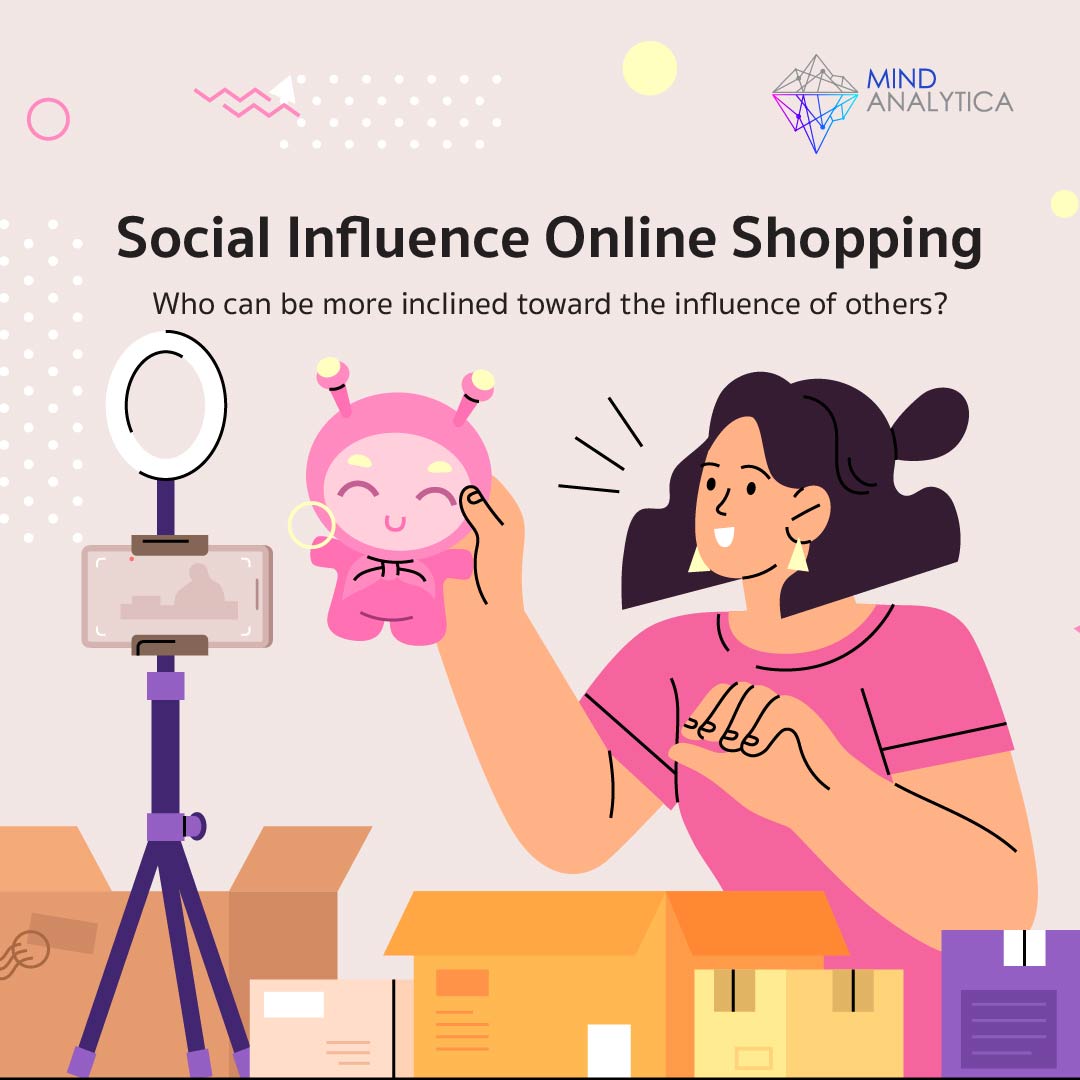Social Influence Online Shopping
20 พฤษภาคม 2567 - เวลาอ่าน 4 นาที
Who can be more inclined toward the influence of others?
Online shopping has been a rapidly growing trend in recent years. This is due to the increasing number of smartphone users and the efforts of many businesses to make online shopping more convenient. However, the decision-making process for buying products online, even though it is convenient and easily accessible with a tap on a smartphone screen, can be difficult for consumers due to the large number of product options and the huge amount of information available. One of the key factors that helps people choose one product from a lot of information is social influence.
Social influence is the process by which individuals change or reconsider their beliefs, behaviors, and adapt to new ideas. Examples of how this affects online shopping behavior include research by Sinha and Swearingen in 2001, which found that consumers are more likely to trust the recommendations of people they know and trust, such as friends or family, more than product recommendation systems from platforms.
In addition, social influence is also present online through social media, both with close acquaintances and with people who are far away, such as influencers who have an intentional or unintentional impact on the behavior of their viewers. A clear example of this was recently when one of the members of the world-famous girl group Blackpink, Lisa, posted a picture of herself with the art toy Labubu, which led both her followers and the general public to become interested in and want a Labubu of their own.
Once you understand the impact of social influence on consumer buying behavior, businesses can use marketing strategies by using celebrities to increase the demand for online shopping products. There is evidence of the impact of social influence on online shopping from research that collected data on online shopping promotions on November 11th of the popular Chinese website Alibaba by researcher Xu et al. in 2017. They found that social influence, whether using celebrities or imitating close acquaintances, has an impact on participation, interaction, and satisfaction with online shopping on November 11th, with close acquaintances having a greater impact than using celebrities. The results of the research also suggest that the feeling of closeness to the third party influencer has a greater impact on product purchases than the feeling of closeness to the celebrity.
However, from the perspective of the first person or the consumer who is influenced by social influence, there may be differences between each person, leading to the interesting question of whether social influence affects everyone equally. Social psychologists have therefore studied what personality traits are more influenced by social influence. From the work of Oyibo and Vassileva in 2019, which divided the process of creating social influence into 3 steps:
1. Social learning: This means learning and imitating behaviors by observing the actions of others.
2. Social proof: This means the belief that the behavior of others in society who follow each other is what is right in that situation.
3. Social comparison: This means evaluating one's own value in society by comparing oneself to others who are similar.
The results found that:
- Neurotic personality leads to increased social imitation, social proof, and social comparison.
- Conscientious personality leads to decreased social imitation and social proof.
- Openness to experience personality leads to decreased social proof and social comparison.
In conclusion, it can be seen that in addition to consumers making purchasing decisions based on the purpose of use and quality, other factors, especially social influence, also affect purchasing behavior and satisfaction with online shopping. And importantly, social influence does not have the same effect on every consumer. In marketing, therefore, the personality of the target group may be considered and it should be considered whether using friends or celebrities to present campaigns to consumers with different personality traits is appropriate. While social influence does not work, it is better to choose other more appropriate campaigns.
References
Oyibo, K., & Vassileva, J. (2019). The relationship between personality traits and susceptibility to social influence. Computers in Human Behavior, 98, 174-188.
Sinha, R. R., & Swearingen, K. (2001). Comparing recommendations made by online systems and friends. DELOS, 106(1), 1-6.
Xu, X., Li, Q., Peng, L., Hsia, T. L., Huang, C. J., & Wu, J. H. (2017). The impact of informational incentives and social influence on consumer behavior during Alibaba's online shopping carnival. Computers in Human Behavior, 76, 245-254.



